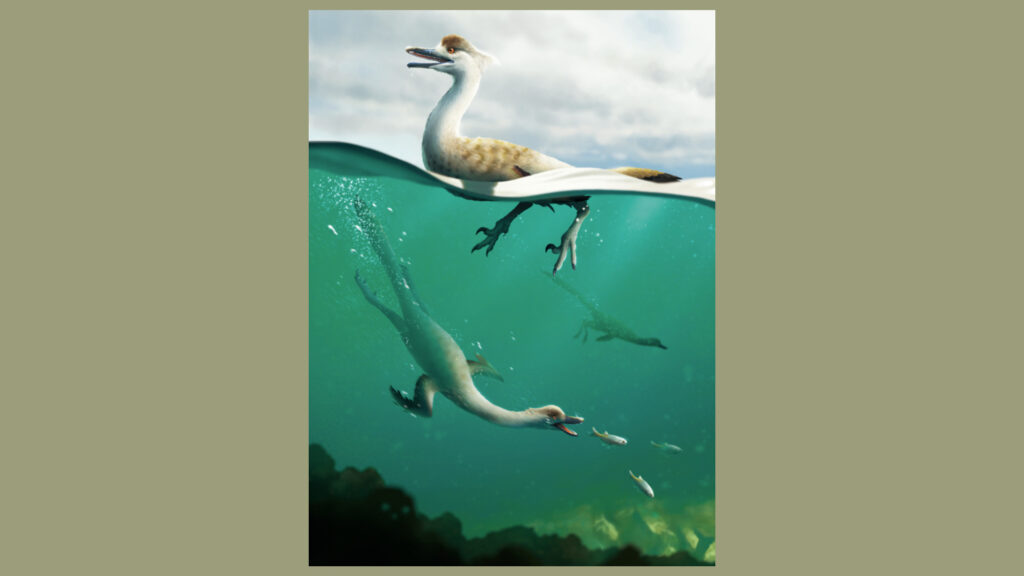Scientists Discover Duck-Sized “Swimming Velociraptor”
December 5, 2022

You’ve heard of the Ugly Duckling, right? Well, this newly discovered swan-like creature seems pretty similar. It lived 71 million years ago. The animal had sharp teeth as well as a beak and feathers. It probably couldn’t fly, though. The creature is a dinosaur. Scientists call it a “swimming velociraptor.”
The bones of the new species were found in the Gobi Desert. It's believed to be the first prehistoric carnivore found with fin-like wings. The dinosaur has a body that can dive and hunt for fish. It isn't as big as a T-Rex, though. Scientists say this bird-like beast was just a foot long.
“I think a swimming Velociraptor is a pretty good characterization,” one of the study's co-authors told The Wall Street Journal (WSJ). “But in terms of what it’s doing, it’s certainly more like a penguin or shorebird in that it’s fishing.”
The dinosaur is called Natovenator polydontus. That means “swimming hunter with many teeth.”
The little predator lived about 5 million years before the dinosaur age ended. Its remains were found in 2008. Researchers first thought it was a mammal or lizard. However, CT scans confirmed it was a dinosaur.
Scientists say the find is part of research that shows that dinosaur species were more varied than once thought.
“Discoveries like this confirm the growing idea that dinosaurs were more diverse than the ‘terrible lizards’ depicted in the popular media,” a scientist told the WSJ.
Reconstructed photo by Sungjin Lee et al. courtesy of Wikimedia Commons.





